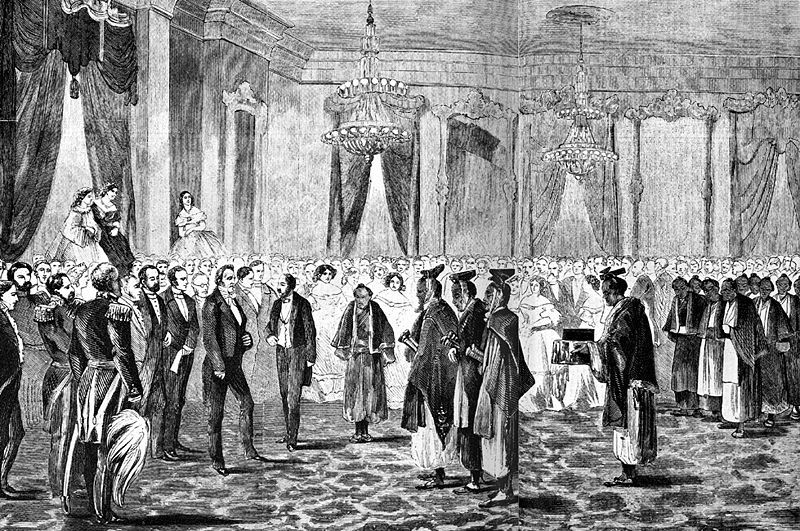“Punting the Pundits” is an Open Thread. It is a selection of editorials and opinions from around the news medium and the internet blogs. The intent is to provide a forum for your reactions and opinions, not just to the opinions presented, but to what ever you find important.
Thanks to ek hornbeck, click on the link and you can access all the past “Punting the Pundits”.
Follow us on Twitter @StarsHollowGzt
New York Times Editorial: Who Deserves a Tax Break?
In a rare show of old-fashioned democracy, Senate Republicans allowed Democrats a simple-majority vote on Wednesday to pass a bill extending tax cuts on income up to $250,000 a year. Republicans, knowing the measure would be killed in the House because it raises taxes on the rich, chose not to filibuster it in hopes of “exposing” a few vulnerable Democrats to a tough vote. [..]
The vote, however, exposes the true priorities of the Republicans. No Senate Republican agreed to support the middle-class tax cut by itself because they insisted that the rich get one, too. (Actually, the rich would have gotten a tax cut on their first quarter-million of income, but, apparently, that wasn’t enough.) Forty-four Republicans (and one Democrat) voted for an alternative bill that would give wildly generous estate tax breaks to a few of the richest American heirs at a cost of $119 billion to the deficit.
And those 44 Republicans also voted to raise taxes on 13 million low- and moderate-income working families. Though it seems unbelievable on a day when Republicans tried to be so generous to their wealthiest contributors, they voted for a bill that would end the child tax credit for nine million families that make less than $13,300, costing some of the nation’s most struggling households $854 a year. Another four million families would be affected by the Republican vote to reduce both the earned income tax credit and the middle-class credit for college tuition.
Robert Reich: The Man Who Invented ‘Too Big to Fail’ Banks Finally Recants. Will Obama or Romney Follow?
I’m in Alaska, amid moose and bear, trying to steal some time away from the absurdities of American politics and economics. But even at this remote distance I caught wind of Sanford Weill’s proposal this morning on CNBC that big banks be broken up in order to shield taxpayers from the consequences of their losses. Forget the bear and moose for a moment. This is big game. [..]
Sandy Weill has finally seen the light. It’s a bit late in the day, but, hey, he’s already cashed in. You and I and millions of others in the United States and elsewhere around the world are still paying the price.
What’s the betting that one of the presidential candidates will take up Weill’s proposal?
E.J. Dionne, Jr.:
Rationalizing Gutlessness on Guns
Talk about power: The gun lobby barely had to say a word before the media sent advocates of saner gun regulation shuffling off in defeat.
In a political version of Stockholm syndrome, even those who claim to disagree with the National Rifle Association’s absolutist permissiveness on firearms lulled themselves into accepting the status quo by reciting a script of gutless resignation dictated by the merchants of death.
It’s a script built on half-truths and myths. For example, polls showing declining support for gun control in the abstract were widely cited, while polls showing broad backing for carefully tailored laws were largely ignored.
Arguments that gun regulation won’t accomplish anything were justified with citations of academic studies that offer mixed or inconclusive verdicts. In the wake of last week’s killings in Colorado, these studies were deployed to hide the elephant in the room: that our country is the scene of more gun deaths than any other wealthy nation in the world. And it isn’t even close.
Jim Hightower: Protecting Political Insiders From Our First Amendment
Ah, it’s almost August – time for another quadrennial flowering of America’s glorious democratic process, otherwise known as the presidential nominating conventions!
This grand testimonial of our citizens’ rights and liberties will begin with the Republicans in Tampa, Fla. Flags are being mounted, majestic music is arranged, uplifting speeches are being scripted – and, as has now become normal for these spectacles of democracy-in-action, heavily armed police repression of our cherished First Amendment rights is being ordered. [..]
In May, at the behest of national Republican officials, Tampa’s mayor and council passed a temporary ordinance to suspend our First Amendment and authorize a crackdown on protestors. Warning ominously that a few vandals might get out of control, the ordinance tries to force all citizen demonstrations into a few restricted parade routes and what amounts to “protest pens.” Pre-emptive detainments, indiscriminate mass arrests and police infiltrations of peaceful protest groups can be expected. Ironically, that’s the kind of autocratic excess that led to the American Revolution itself.
John Nichols: Mitt Romney’s Bankster Ball
Mitt Romney will show his true colors tonight, when he slips behind closed doors in a foreign capital to collect money from international bankers who are mired in scandal.
The presidential contender is officially in London to cheer on the U.S. team in the Olympics. But Romney doesn’t always cheer for Team USA. When it comes to global economics, Romney remains very much the “vulture capitalist” his Republican primary foes decried. And tonight, he’ll be swooping into central London to party with masters of the universe who know no country — and, it would appear, no ethical bounds. [..]
That’s the kind of event that candidates like to keep secret.
Dave Zirin: Fists of Freedom: An Olympic Story Not Taught in School
It has been almost 44 years since Tommie Smith and John Carlos took the medal stand following the 200-meter dash at the 1968 Olympics in Mexico City and created what must be considered the most enduring, riveting image in the history of either sports or protest. But while the image has stood the test of time, the struggle that led to that moment has been cast aside. When mentioned at all in U.S. history textbooks, the famous photo appears with almost no context. For example, Pearson/Prentice Hall’s United States History places the photo opposite a short three-paragraph section, “Young Leaders Call for Black Power.” The photo’s caption says simply that “…U.S. athletes Tommie Smith and John Carlos raised gloved fists in protest against discrimination.”[..]
Smith and Carlos sacrificed privilege and glory, fame and fortune, for a larger cause-civil rights. As Carlos says, “A lot of the [black] athletes thought that winning [Olympic] medals would supersede or protect them from racism. But even if you won a medal, it ain’t going to save your momma. It ain’t going to save your sister or children. It might give you 15 minutes of fame, but what about the rest of your life?”
The story of Tommie Smith and John Carlos at the 1968 Olympics deserves more than a visual sound bite in a quickie textbook section on “Black Power.” As the Zinn Education Project points out in its “If We Knew Our History” series, this is one of many examples of the missing and distorted history in school, which turns the curriculum into a checklist of famous names and dates. When we introduce students to the story of Smith and Carlos’ defiant gesture, we can offer a rich context of activism, courage, and solidarity that breathes life into the study of history-and the long struggle for racial equality.
On this day in 1965, President Lyndon B. Johnson signs Medicare, a health insurance program for elderly Americans, into law. At the bill-signing ceremony, which took place at the Truman Library in Independence, Missouri, former President Harry S. Truman was enrolled as Medicare’s first beneficiary and received the first Medicare card. Johnson wanted to recognize Truman, who, in 1945, had become the first president to propose national health insurance, an initiative that was opposed at the time by Congress.


 Welcome to the Stars Hollow Health and Fitness News weekly diary. It will publish on Saturday afternoon and be open for discussion about health related issues including diet, exercise, health and health care issues, as well as, tips on what you can do when there is a medical emergency. Also an opportunity to share and exchange your favorite healthy recipes.
Welcome to the Stars Hollow Health and Fitness News weekly diary. It will publish on Saturday afternoon and be open for discussion about health related issues including diet, exercise, health and health care issues, as well as, tips on what you can do when there is a medical emergency. Also an opportunity to share and exchange your favorite healthy recipes. 

Recent Comments